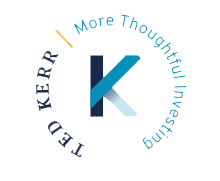In our last two blog posts, we discussed the remarkable year in the market and economy in 2019 and what we might expect in 2020. But we have yet to address the elephant in the room, which is the fact it’s a presidential election year. It seems every four years at this time, investors begin wringing their hands over the presidential election and the impact it will have on the economy and the markets.
This year it’s especially disconcerting because, by all accounts, the stock market seems to like what has occurred under the current president. What happens if Trump loses the election? Will the stock market tumble? He’s behind in the polls; should investors get out now?
If it’s not Knowable or Important, Forget About It
This is an opportune time to resurface a quote from Warren Buffett. He once said, “I don’t think about the macro stuff…just what’s important and knowable. If it’s unimportant or unknowable, you forget about it.” Unquestionably, the election of our next president is important as it could impact the economy. But is it knowable? There are a lot of things that are knowable but not important. And there are a lot of things that are important but not knowable. Buffett says investors should only focus on what is both important and knowable and to do otherwise is a complete waste of time.
As history has clearly shown us, it is impossible to know who is going to be president in January of 2021. If the professional class – i.e., the pollsters – can all get it wrong, as they did in 2016, how can the rest of us possibly know what will happen in November? You can hope you know and then build a strategy around that. But a strategy based on hope is not a strategy.
Investing in What We Know
As investors, we focus strictly on what’s knowable based on in-depth research and analysis of companies. We can know and understand the fundamentals that drive companies and, in doing so, pretty much ignore everything else because it’s not important. For example, we know when a company sells something, it keeps a percentage of the revenue as profit. After the company pays all of its bills, we know how much they have in profits. We also know that profits, especially sustainable profits, benefit shareholders, through rising dividends, share buybacks, or share price growth when the company reinvests their profits for growth. All of that is knowable and important to an investor.
What do You Know?
As for you individually, what is important to know depends mainly on your stage in life. If you’re saving and investing for retirement, you know how much you are making, how much you have invested, and how much you need to save to reach your goal. You know your timeline and, based on your year-to-year progress and the current reality, you can know whether you need to adjust your savings rate or what you can expect to earn on your money.
By focusing on what you know, which is you need to save, you can make a much more significant impact on your financial life than wringing your hands over what the Federal Reserve or the next president is going to do. What’s important, and knowable, is whether you can increase your savings rate enough to get the full company match on your 401(k), not whether the next president is a Republican or Democrat.
If you are on the glide path to retirement – five to ten years out – you have the target in your sights. At this point, you know your current lifestyle and the lifestyle you expect in retirement. You are at a point when you can quantify that lifestyle and how much income your assets need to produce to continue that lifestyle or one that is acceptable. With the time you still have before retirement, you know what adjustments you need to make to hit your target. Reaching your target is all that is important – not how the economy will be performing a year from now.
Acting on What You Don’t Know Could be Hazardous to Your Wealth
I think about the investors who fled the market late last year. There was tremendous fear that the economy was going to turn, and the stock market was going to plunge as a result. They abandoned their strategy over something that wasn’t knowable and, in terms of their long-term objectives, wasn’t really important. Over the next 10 to 12 months, many of them missed out on one of the most significant stock market surges in history. They couldn’t know what was actually going to happen last year. But, if they did have a strategy, they should have known it was more important than some momentary blip in the market.
Warren Buffett once said you never get hit by the bus you’re looking at. You’re more likely to get hit by the bus coming from the other direction. That’s a key concept you can use to remind yourself that, if you are not clearly focused on your goals and strategy, you probably won’t see the dangers or opportunities coming your way.


